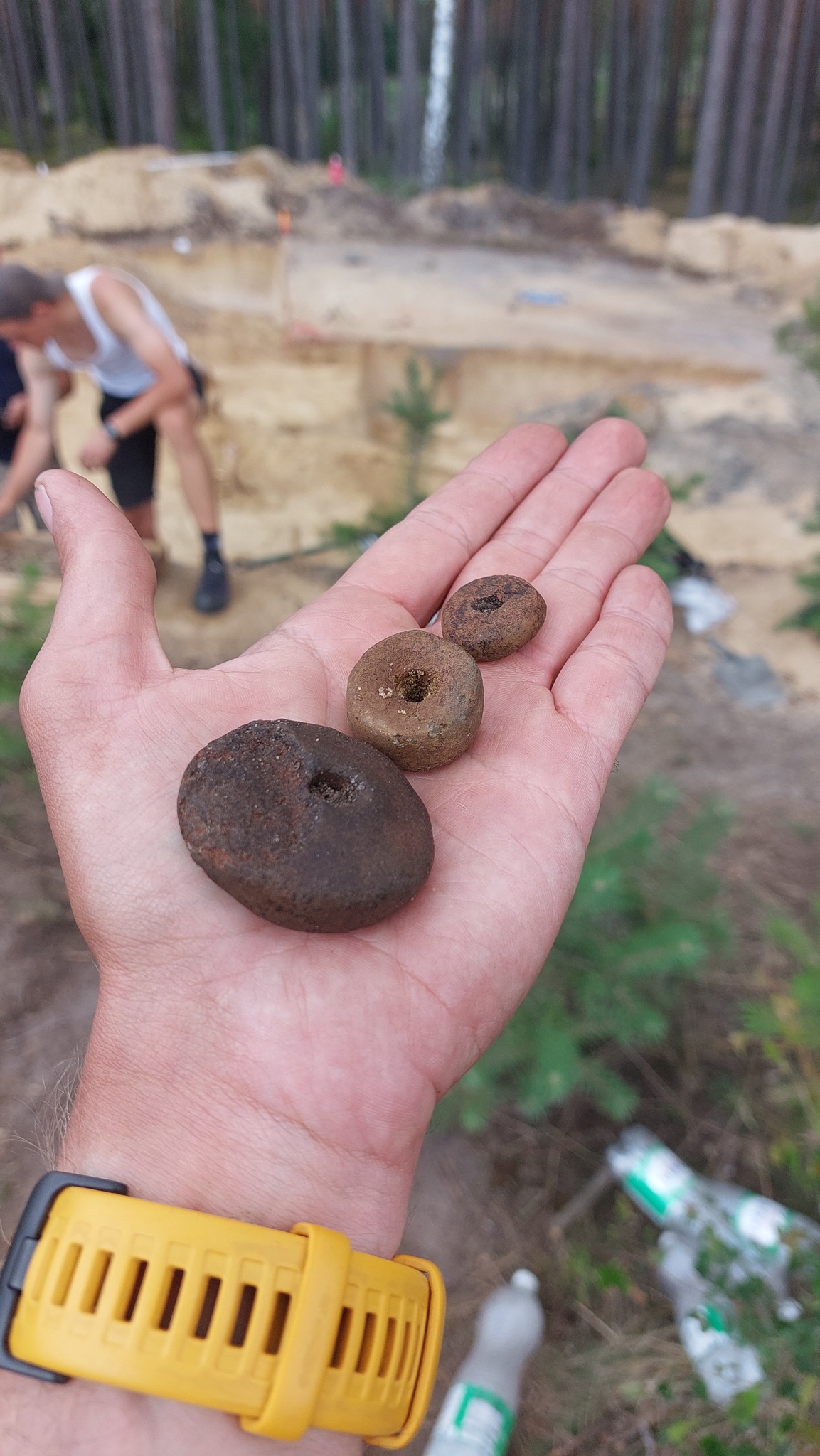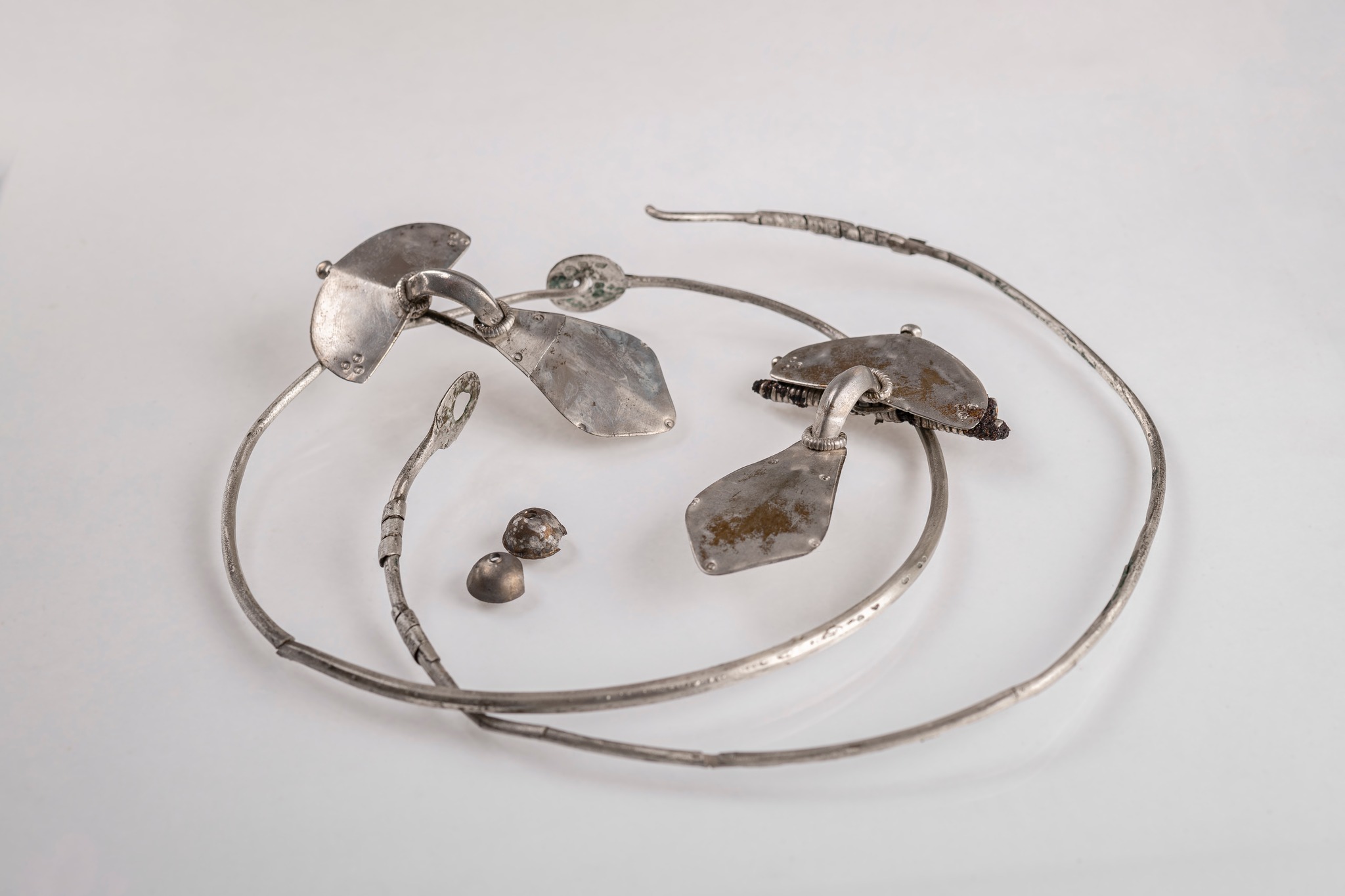To je úžasné, úžasné nálezy a článek 👍
A large Gothic cemetery from the Migration period discovered in Poland
Categories: Nálezy nejenom s detektorem kovů ve východní Evropě
A 4th and 5th century Gothic cemetery has been uncovered in Stara Rzeczyca on the site of the Wdecki protected landscape area in northern Poland. Fifty graves have been excavated so far, covering an area of about 250 m2, but it is estimated that the entire cemetery covers at least a hectare. Jewellery, brooches, amber and glass beads, pottery and everyday objects such as spindle whorls and bone combs have been discovered in the contents of pit and urn graves.
On Thursday, July 6, park staff informed Toruń archaeologist Olaf Popkiewicz that they had noticed a sheen of silver artefacts while running errands around the banks of the Wda River. Olaf summoned a team of archaeologists and began an excavation whose first discovery was a set of two silver necklaces, two silversilver fibulae and parts of a silver bead necklace - all in excellent condition.
The high quality of the silver and the style of the fibulae are characteristic of the Chernyakhov culture - a Gothic people who gradually migrated from Pomerania to the Black Sea, settling in what is now Ukraine. Imported necklaces were made in Scandinavia in the 4th century. The silver assemblage thus includes artifacts from Scandinavia in the north to the Black Sea in the southeast.
Although no architectural remains have been discovered, a Gothic settlement lay here. The people had access to local metals and metallurgical knowledge. They obtained metals from glacial erratics deposited by melting glaciers, a highly specialised skill that required locating, preparing, crushing and roasting large stones in specialised furnaces. Several roasting cycles were required before the ore was separated. Interestingly, although a fair amount of metal objects were found in the graves, there were no weapons among them.
"The fifty ancient Goth graves discovered are only a small fraction of what we have yet to see underground. The first results give reason to assume that the cemetery is much larger," said Mateusz Sosnowski, a specialist in the protection of the landscape, historical and cultural values of Wdecki Park. The on-site survey has been going on for four weeks and will continue as the condition of much of the open necropolis is rapidly deterioratingand rescue works are required, which will probably take place on the whole cemetery area. Further interesting finds from the turbulent period of the Migration of Peoples can thus be expected.
Roman Němec
Sources: bydgoszcz.wyborcza.pl, wdeckipark.pl

the burial site is at least one hectare in size - only a small part has been uncovered so far

Profile

a team of archaeologists and volunteers

fibula

bead

bead

overleaf

set of silver necklaces, fibulae and beads

funeral urn in perfect condition

silver fibula in situ

very high quality silver fibulae

bone comb
The article is included in categories:
- Archive of articles > Archaeology > Finds and rescue research abroad > Nálezy nejenom s detektorem kovů ve východní Evropě
Post
Ty fotky ve fhd to je petelice Už vím co chci najít po 15 letech.Fibulu👌A ten hřeben je top😊🤘
Parádní!
To je nádhera kopat takhle v písku.
Super. 


Olaf je borec! https://youtu.be/3Uy0ESYqiTA?si=o0OaiKPTxkzSTz2w
Jen upřesněním, že pan Olaf tam šel cíleně hledat s detektorem a proto nesedí: " ....při pochůzce kolem břehu řeky Wda zaregistroval lesk stříbrných artefaktů...." Také sám hned vykopal dva stříbrné náhrdelníky, jednu stříbrnou fibuli a teprve potom zavolal tým archeologů. Jinak krásný nález a videa Olafa mám rád

https://www.youtube.com/watch?v=sKXwxb7jIw8













